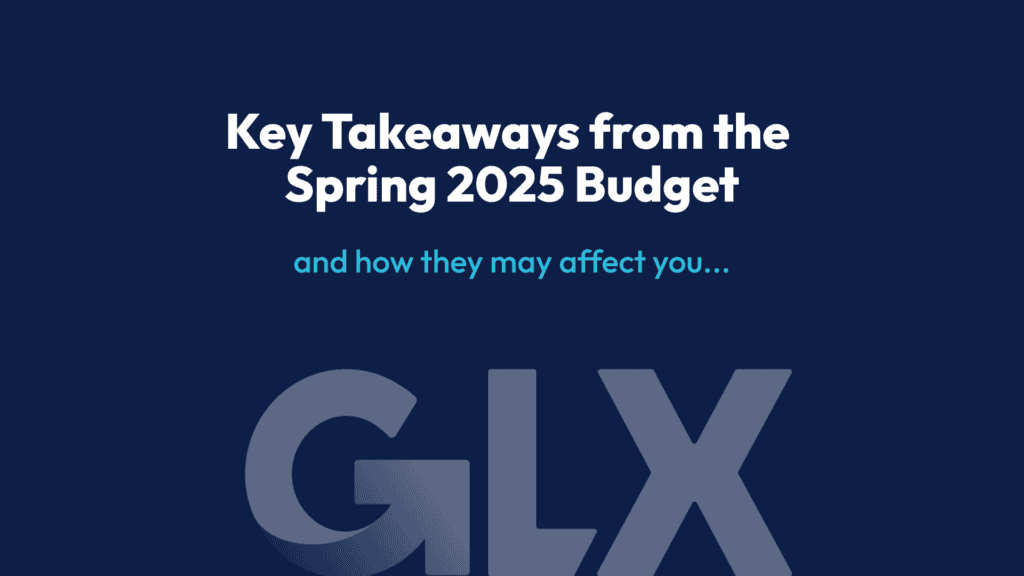Key Takeaways from the Spring 2025 Budget

On March 26th, Chancellor Rachel Reeves unveiled the Spring 2025 Budget, responding to current economic challenges and outlining plans for the future.
We’ve outlined the key takeaways that may impact individuals, sole traders, and business owners.
Overall, The Spring 2025 Budget emphasises modernisation, compliance, and strategic reforms without dramatic tax rate changes.
Individuals, sole traders, and business owners must prepare for these developments, with ‘Making Tax Digital’ being the most important point here. We’ll be reaching out directly to all our clients affected, but if you’d like to get ahead of the game, we’d be happy to help you prepare for this change.
Take a look at some of the key takeaways:
No easing of business taxes:
The budget confirmed that increases to Employers’ National Insurance Contributions and other business taxes set to take
effect in April 2025 will not be eased. This means businesses will face increased costs, affecting pricing and wage decisions.
Making Tax Digital (MTD):
A phased rollout of Making Tax Digital for Income Tax will require sole traders and landlords with income over £20,000 to comply by April 2028. This includes mandatory quarterly digital updates and using MTD-compatible software. Affected individuals need to prepare for these changes and ensure they have the right tools in place.
Measures against tax avoidance:
The government is taking a firm stance against marketed tax avoidance schemes. A new consultation aims to strengthen penalties for scheme promoters, enhance HMRC’s powers to combat tax evasion, and create a less permissive environment for such schemes. Individuals are encouraged to be cautious and ensure their tax practices align with legal requirements.
Revised behavioural penalties:
HMRC is consulting on reforms to its penalties regime, focusing on simplifying the system and making penalties more proportionate. This aims to address inconsistencies in how errors in tax returns are penalised, particularly for honest mistakes, promoting a fairer approach to compliance.
Advance clearance for R&D tax claims:
The budget proposes exploring advance clearances for Research and Development (R&D) tax claims. If implemented, businesses could obtain an upfront agreement from HMRC regarding eligibility for R&D relief, reducing the uncertainty and administrative burden associated with post-claim reviews.
Enhanced third-party data utilisation:
HMRC plans to improve its data collection methods and use third-party data to enhance tax compliance. This may involve using earnings data from gig economy platforms and bank transaction insights to facilitate tax return processing and compliance checks.
If you have any questions about your finances or need assistance with your accounting, contact the team at GLX on 01603 617361 or email info@glx.co.uk